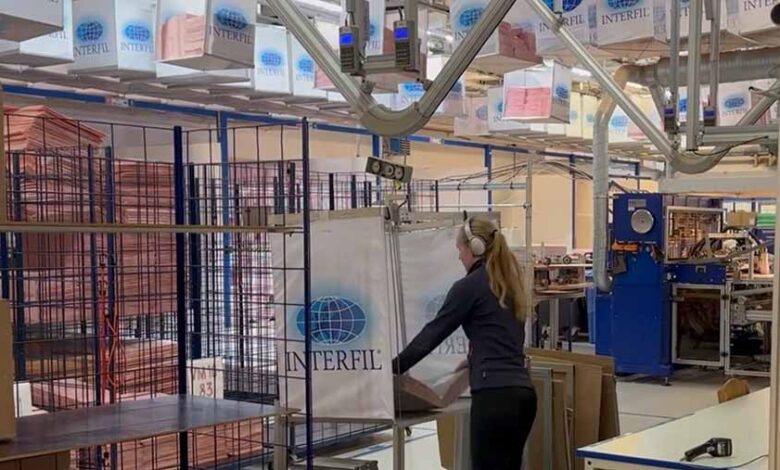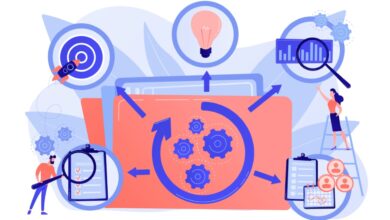Interfil’s Advanced Filtration for Australia’s Food & Beverage Sector This September

Australia’s food and beverage sector faces mounting pressure to deliver products that meet stringent safety, quality, and sustainability standards. From dairy and beverages to packaged goods and exports, every stage of food processing requires systems that guarantee purity while maintaining efficiency. In this environment, advanced filtration has become a cornerstone of both compliance and competitiveness.
Companies specialising in Water Treatment Australia are now providing the technologies that enable producers to meet regulatory demands, reduce environmental impact, and maintain consumer trust. Here’s how advanced filtration is shaping the future of the industry.
Why Advanced Filtration is Critical in Food Processing
Filtration plays several essential roles in modern food production:
- Product Safety: Removes harmful microorganisms, particles, and contaminants that could compromise consumer health.
- Quality Control: Ensures consistency of flavour, colour, and texture from batch to batch.
- Operational Efficiency: Reduces downtime by preventing clogging, corrosion, and equipment wear.
- Regulatory Compliance: Meets Australia’s strict domestic food safety standards as well as international export requirements.
Because many Australian producers serve global markets, compliance with both local and international rules is vital for maintaining market access and reputation.
The Evolving Challenges for Australian Producers
Recent years have introduced new complexities for manufacturers:
- Water Scarcity: Much of Australia faces drought conditions, making efficient use and treatment of water a top priority.
- Sustainability Pressures: Producers are under growing pressure to minimise waste, reduce carbon emissions, and cut energy usage.
- Consumer Transparency: Shoppers increasingly want to know not just what’s in their food, but how it’s made. Ingredient quality, production processes, and environmental practices all influence purchasing decisions.
In this context, filtration systems are more than compliance tools—they are strategic assets that deliver both operational and brand advantages.
Technological Advances in Filtration
Today’s advanced systems go far beyond traditional particle removal. They employ a combination of methods tailored to the needs of different applications:
- Membrane Filtration: Removes bacteria and fine particulates while retaining desirable flavour and nutritional compounds.
- Activated Carbon Filtration: Eliminates unwanted odours, colours, and chemical residues, ensuring a cleaner taste.
- Centrifugal Separation: Efficiently separates solids from liquids, streamlining production and reducing labour.
- Crossflow Filtration: Maintains steady production by minimising fouling and reducing the frequency of cleaning cycles.
These technologies not only enhance product quality but also reduce the risks of contamination, helping manufacturers achieve consistent, reliable outcomes.
Sustainability as a Driving Force
Sustainability has moved from being an optional goal to a non-negotiable requirement for the food and beverage sector. Advanced filtration contributes to this by:
- Reusing and Recycling Water: Capturing and repurposing process water reduces overall consumption.
- Lowering Chemical Usage: Reducing the need for cleaning agents enhances both safety and sustainability.
- Cutting Energy Costs: Energy-efficient pumps and membranes help lower operational expenses while reducing environmental impact.
For Australian manufacturers, these efficiencies directly support environmental compliance and corporate responsibility commitments. They also provide measurable cost savings, which is critical in a sector with tight margins.
Integrating Filtration into a Broader Food Processing Strategy
While advanced filtration is indispensable, it delivers the greatest value when integrated into a holistic operational approach. Key elements include:
- Routine Monitoring: Regular testing of water and product samples to verify ongoing system performance.
- Preventive Maintenance: Ensuring equipment remains in peak condition to avoid unplanned downtime.
- Staff Training: Educating teams on hygiene, safety, and proper equipment handling to maximise efficiency.
- Staying Current on Compliance: Keeping up with evolving regulations and emerging contaminants that may affect food safety.
This integrated approach not only improves compliance but also makes facilities more agile. Manufacturers can switch between products or recipes with reduced downtime, helping them remain competitive in a market where flexibility is essential.
September: A Key Moment for Planning
For many Australian food and beverage producers, September marks a crucial planning period. With summer production and the holiday season approaching, now is the ideal time to assess readiness.
Upgrading or optimising filtration systems before peak demand ensures facilities can manage higher volumes without compromising safety or quality. It also provides an opportunity to integrate sustainability enhancements ahead of the busiest season, helping businesses meet both consumer demand and environmental commitments.
Conclusion
In Australia’s competitive food and beverage sector, advanced filtration is no longer optional. It is a vital component of food processing, ensuring product safety, consistency, and compliance while also supporting sustainability goals.
By adopting modern filtration systems and embedding them into a comprehensive operational strategy, producers can safeguard product integrity, protect brand reputation, and prepare for the challenges ahead. As consumer expectations continue to rise and environmental pressures intensify, the role of advanced filtration will only become more critical.
For those looking to strengthen their operations this season, partnering with specialists in Water Treatment Australia is an investment that delivers immediate benefits and long-term resilience.




